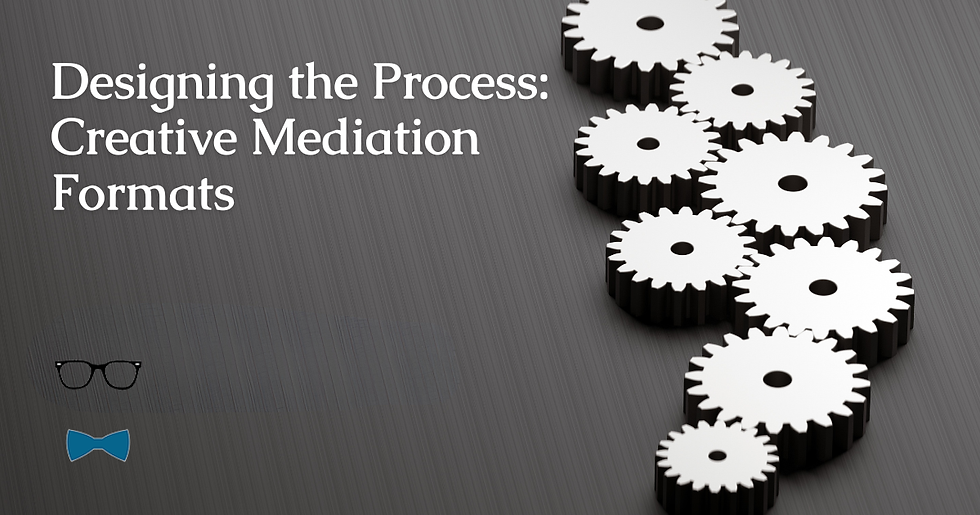Attorney-Only Caucuses at Mediation: A Powerful Tool, Used Wisely
- Cooper Shattuck

- Aug 7, 2025
- 3 min read
Those of us who regularly serve as mediators or represent parties in mediation have come to appreciate the power of the private caucus. When used well, a caucus—whether with one party, or just the attorneys—can unlock impasse, clarify priorities, and identify creative solutions. One specific type of caucus, the attorney-only caucus, can prove invaluable but can be fraught with problems.

What Is an Attorney-Only Caucus?
An attorney-only caucus is a confidential discussion between the mediator and a lawyer or the lawyers, without their clients present. These meetings can allow attorneys to speak more freely about the strengths and weaknesses of their cases, test theories of settlement, or explore potential legal or procedural issues that may not be appropriate (or productive) to discuss with clients in the room.
But like any powerful tool, it must be handled with care.
Why It’s Valuable
There are real advantages to stepping aside with counsel:
Cutting to the chase: With fewer sensitivities in the room, lawyers and mediators can speak more directly and efficiently.
Exploring options: Attorneys may float potential offers or conditions that could pave the way to resolution but would be difficult to explain to a client until further developed.
Testing the waters: Mediators can explore how far each side may be willing to go—without triggering emotional reactions from clients who aren’t yet ready to hear compromise or risk.
Used appropriately, attorney caucuses can accelerate resolution, protect the dignity of the clients, and allow legal professionals to do what they do best: problem-solve.
The Client Perception Problem
But here's the catch: clients often don't know what to make of these private meetings.
Even the most sophisticated client may wonder:
Why am I being left out?
Are they talking about me?
Do they think I’m not smart enough to understand what’s going on?
Do they not trust me?
If unaddressed, these concerns can breed mistrust, frustration, and resistance—all enemies of successful mediation.
How to Do It Better
So how do we balance the utility of the attorney-only caucus with the need to keep clients feeling respected and engaged? A few best practices can go a long way:
1. Set Expectations Early
Attorneys should explain, well before mediation day, that there may be moments where the lawyers speak with the mediator privately. Frame this as a strategic and normal part of the process—not a secretive sidebar.
2. Get Buy-In in the Room
If the time comes for an attorney caucus, take a moment to explain to the client why it’s happening:
“We’re going to step out with the mediator briefly to explore some legal angles and settlement structure ideas that may or may not be helpful. We’ll bring back anything that’s relevant for you to weigh in on.”
3. Keep It Short and Productive
These sessions should be focused and respectful of everyone’s time. The goal is not to exclude, but to explore.
4. Bring It Back to the Client
Once the discussion concludes, circle back with your client. Even if nothing concrete came from the caucus, reaffirm their value in the process:
“We talked through some options and hurdles that we’re still working through, but I want your input before we go any further.”
5. Use the Mediator to Help Translate
Sometimes, it’s helpful for the mediator to explain the caucus directly to the client. This neutral explanation can ease any discomfort or suspicion.



Comments